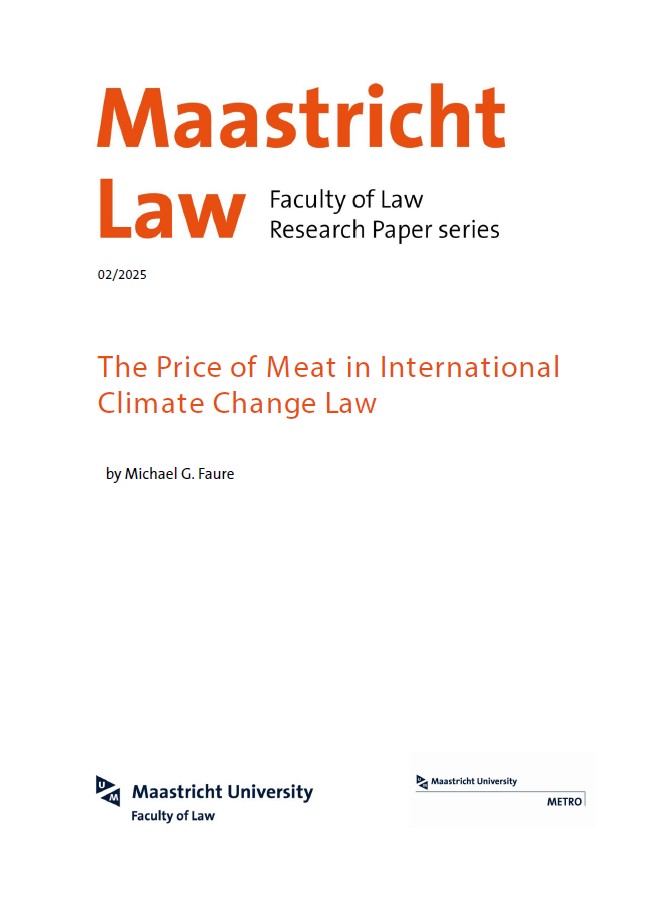- Series: Maastricht LAW Research Paper Series
- Institution: Faculty of Law | Maastricht University

DOI
https://doi.org/10.26481/mup.law.rps.2502
Publication date (online)
20-08-2025
Copyright and license
© 2025 The Authors & Maastricht University – The content of this work is licensed under a CC BY 4.0 International License.
Abstract
International climate change law has paid little attention to food production, and particularly meat, despite livestock’s substantial role in global greenhouse gas emissions, estimated at 14.5% worldwide, rising to around a quarter if land use is included.
This paper argues for integrating meat production into climate policymaking and assesses which instruments could achieve this. Options examined include production changes, stricter regulation, and expanding emissions trading schemes.
The most promising pathway, it suggests, is a meat tax, implemented as part of a broader policy mix that combines market tools with behavioural measures. Such a tax would need at least a regional, ideally international, mandate, given the cross-border nature of emissions and trade.
The analysis outlines how an optimal tax rate could be set, anticipates its effects, and considers how public support could be built.
The paper also highlights a crucial challenge: none of the G20 countries currently references food production in their climate pledges, a gap sustained in part by the lobbying power of the meat industry. Ultimately, it concludes that incorporating the environmental costs of meat into its price is essential if the ambitions of the Paris Agreement are to be met.
Publication details and metadata
Title
The Price of Meat in International Climate Change Law
Series
Maastricht LAW Research Paper Series
Institution
Faculty of Law | Maastricht University
Author
M.G. Faure (ORCID) – Maastricht University (ROR)
DOI (digital version)
https://doi.org/10.26481/mup.law.rps.2502
Copyright and licensing
© 2025 The Authors & Maastricht University – CC BY
The content of this work is licensed under a Creative Commons BY 4.0 International License.
Access to this publication
- Download: Download the PDF
- Read Online: Open the flipbook
- Archives:
Publication Type and Language
Research Paper – English
Publication date (first online)
20 August 2025
Subject
transnational environmental law
Keywords
meat, livestock, greenhouse gas emissions, methane, nitrous oxide, ammonia, emission trading, taxation, nudges, behavioural policy, nationally determined contributions, multilevel governance, lobbying
Citation for this work
Faure, M. G. (2025). The Price of Meat in International Climate Change Law. (pp. 1-38). Maastricht University Press. Maastricht LAW Research Paper Series Vol. 2025 No. 02. https://doi.org/10.26481/mup.law.rps.2502
Related Publications and Final Versions
Statistics
Overview of total views and downloads. Statistics are updated monthly
- Page views:
- Paper downloads:
Last update:

